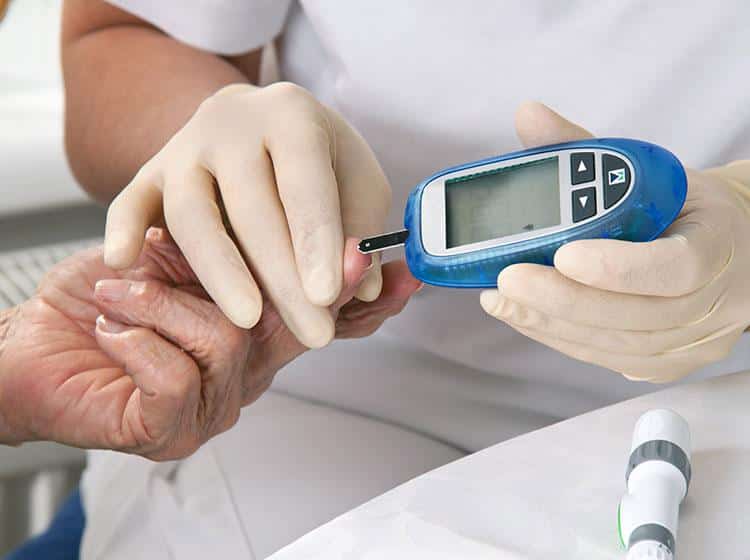What is Diabetes?
- Diabetes is a chronic disease that occurs when the pancreas can no longer make insulin, or the body cannot make good use of the insulin it produces.
- Insulin is a hormone that regulates blood glucose.
- Not being able to produce or use insulin effectively leads to raised glucose levels in the blood, known as hyperglycaemia.
- Over the long-term high glucose levels are associated with damage to the body and failure of various organs and tissues.
- Diabetes is a major cause of blindness, kidney failure, heart attacks, stroke, and lower limb amputation.
Types of Diabetes:
- Type 1 diabetes:
- It is a condition in which your immune system destroys insulin-making cells in your pancreas. These are called beta cells.
- When you have type 1 diabetes, your body produces very little or no insulin.
- It requires daily administration of insulin to maintain blood glucose levels under control.
- It is usually diagnosed in children and young people, so it used to be called juvenile diabetes.
- Symptoms include excessive excretion of urine (polyuria), thirst (polydipsia), constant hunger, weight loss, vision changes, and fatigue.
- Type 2 diabetes:
- It results from the body’s ineffective use of insulin that it produces.
- More than 95% of people with diabetes have type 2 diabetes.
- This type of diabetes is largely the result of excess body weight and physical inactivity.
- Symptoms may be similar to those of type 1 diabetes but are often less marked. As a result, the disease may be diagnosed several years after onset.
- Gestational diabetes (GDM):
- It is a type of diabetes that consists of high blood glucose during pregnancy and is associated with complications for both mother and child.
- GDM usually disappears after pregnancy, but women affected, and their children are at increased risk of developing type 2 diabetes later in life.
Q1) What is Glucose?
Glucose is the main type of sugar in the blood and is the major source of energy for the body’s cells. Glucose comes from the foods we eat or the body can make it from other substances. Glucose is carried to the cells through the bloodstream. Several hormones, including insulin, control glucose levels in the blood.
Source: Study discovers insulin deficiency associated with Type 1 diabetes leads to smaller pancreas
Last updated on June, 2025
→ UPSC Notification 2025 was released on 22nd January 2025.
→ UPSC Prelims Result 2025 is out now for the CSE held on 25 May 2025.
→ UPSC Prelims Question Paper 2025 and Unofficial Prelims Answer Key 2025 are available now.
→ UPSC Calendar 2026 is released on 15th May, 2025.
→ The UPSC Vacancy 2025 were released 1129, out of which 979 were for UPSC CSE and remaining 150 are for UPSC IFoS.
→ UPSC Mains 2025 will be conducted on 22nd August 2025.
→ UPSC Prelims 2026 will be conducted on 24th May, 2026 & UPSC Mains 2026 will be conducted on 21st August 2026.
→ The UPSC Selection Process is of 3 stages-Prelims, Mains and Interview.
→ UPSC Result 2024 is released with latest UPSC Marksheet 2024. Check Now!
→ UPSC Toppers List 2024 is released now. Shakti Dubey is UPSC AIR 1 2024 Topper.
→ Also check Best IAS Coaching in Delhi
























